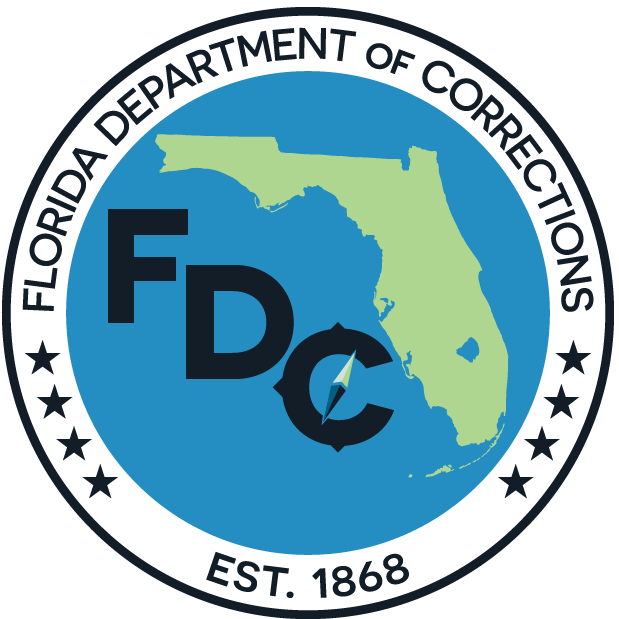Modernizing FDC Rules

Rehabilitation-Centered Reform
Freedom Force Florida has developed a comprehensive reform package designed to transform the Florida Department of Corrections (FDC) into a rehabilitation-focused system. This initiative recognizes that effective corrections policy must balance security needs with meaningful opportunities for personal growth and change, shifting operational focus from punitive measures to evidence-based rehabilitation while maintaining necessary security protocols.
Foundational Reform Principles:
Rule Validity Framework
- Every rule must serve clear penological purposes
- Rules must support either security or rehabilitation
- Excessive restrictions that impede rehabilitation will be eliminated
- Regular assessment of rule effectiveness required
Cultural Transformation
- Mandatory professional courtesy standards
- Required use of respectful forms of address
- Enhanced staff training in rehabilitation principles
- Professional accountability measures
Facility Redesignation Program
All facilities will be redesignated as either Rehabilitation Centers or Special Management Units. The vast majority will be Rehabilitation Centers comparable to current "incentivize institutions". Special Management Units will be reserved for those who cannot or will not conform to the rehabilitative process.
Diagnostic Centers (formerly Reception Centers)
- Comprehensive needs assessment protocols
- Individual rehabilitation planning
- Evidence-based classification systems
- Mental health and education screening
- Substance abuse evaluation and treatment planning
Rehabilitation Centers
- Expanded educational opportunities
- Vocational training programs
- Peer mentorship systems
- 1:10 mentor-to-resident ratio
- Wing-level leadership positions
- Staff liaison program
- Incentive-based behavioral management
Special Management Units
- Enhanced security protocols
- Intensive therapeutic programming
- Mandatory officer body cameras
- Strict accountability measures for all parties
- Focus on cognitive behavioral intervention
Pathway to Implementation
The proposed reforms represent a fundamental shift in Florida's correctional philosophy, transitioning from a punitive model to an evidence-based rehabilitation framework. This transformation will be achieved through systematic rule changes and operational reforms that prioritize both institutional security and meaningful rehabilitation.
Implementation Timeline and Metrics:
- Initial Phase (Months 1-6)
- Staff training on new protocols
- Facility redesignation process
- Implementation of courtesy title requirements
- Installation of body camera systems
- Development of evaluation metrics
- Transitional Phase (Months 7-18)
- Full operation of Diagnostic Centers
- Establishment of peer mentorship networks
- Implementation of enhanced programming
- Staff performance evaluation adjustments
- Data collection and analysis initiation
- Optimization Phase (Months 19-24)
- Program effectiveness assessment
- Rule modification refinements
- Staff feedback integration
- Outcome measurement analysis
- Policy adjustment as needed
Expected Outcomes:
- Institutional Benefits
- Reduced incidents of violence
- Improved staff-resident relations
- Enhanced facility safety
- More efficient resource allocation
- Increased program participation
- Rehabilitation Success
- Higher program completion rates
- Improved behavioral metrics
- Enhanced life skills development
- Better preparation for release
- Reduced recidivism rates
- Organizational Improvement
- Professional culture enhancement
- Improved staff retention
- Better public perception
- Cost-effective operations
- Measurable success metrics
Conclusion
Through these comprehensive reforms, the Florida Department of Corrections will better serve its constitutional mandate while providing genuine opportunities for rehabilitation. This transformation will benefit not only the incarcerated population but also correctional staff, families, and Florida communities as a whole. The proposed rules provide the framework for this essential evolution in correctional practice, ensuring that both security and rehabilitation goals are met through professional, evidence-based methods.
FFF remains committed to supporting this transition through ongoing assessment, stakeholder engagement, and adaptive management strategies. Success will be measured not just in institutional metrics, but in the lasting positive impact on public safety and successful community reintegration.
Sample rule revision.
IN THE FLORIDA DEPARTMENT OF CORRECTIONS
FILE NO. _______
IN RE AMENDMENT OF RULE 33-208.002, F.A.C.
PETITION TO INITIATE RULEMAKING
COMES NOW Christina Kate Heady, Director of Operations, Freedom Force Florida, pursuant to s.120.54(7), Fla. Stat. (2023), and petitions the Department to amend Rule 33-208.002, Fla. Admin. Code (2023), as follows:
33-208.002 Rules of Employee Conduct
(1) - (7) No change.
(8) Employee Conduct Requirements:
- (a) No employee shall willfully or negligently treat an inmate in a cruel or inhuman manner;
- (b) No employee shall use profane or abusive language when interacting with an inmate or any person under the employee's supervision;
- (c) All employees shall address inmates and persons under supervision using appropriate courtesy titles (Mr., Miss, Ms., or Mrs.) in accordance with the individual's stated gender identity;
- (d) Employees shall maintain professional decorum at all times when interacting with inmates or persons under supervision.
(9) - (27) No change.
STATEMENT OF JUSTIFICATION AND FISCAL IMPACT
Legal Basis: This amendment strengthens compliance with s. 94.09(1)(l), Florida Statutes, regarding professional conduct standards in correctional facilities.
Purpose: The proposed changes enhance the Department's commitment to professional conduct and human dignity, aligning with evidence-based correctional practices and contemporary standards in inmate treatment.
Fiscal Impact: Implementation costs are limited to standard rule promulgation expenses. The amendment is expected to yield positive returns through:
- Reduced incidents of misconduct
- Improved institutional culture
- Enhanced rehabilitation outcomes
- Decreased grievance proceedings
Respectfully submitted,
Christina Kate Heady
Director of Operations,
Freedom Force Florida
